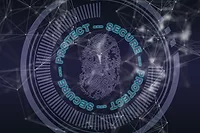Email Privacy Act Reintroduced in Congress
A bipartisan group of lawmakers has reintroduced the Email Privacy Act that would require government agents to get a warrant to look at your emails.
Representatives Kevin Yoder (R-KS) and Jared Polis (D-CO) reintroduced the Email Privacy Act, which would update the Electronic Communications Privacy Act (ECPA) to state that all government agencies must get a warrant to search Americans’ online communications, regardless of when the email was crafted. In 1986, Congress passed ECPA, which contains a loophole that allows the government to search any email older than 180 days stored on a third-party server, such as Google or Yahoo, without a warrant.
“After the unanimous passage of our bill last year, I see no reason why we can’t get this done right away,” Representative Yoder said. “Let’s give the Senate ample time to act, because more than 30 years has been long enough for Congress to wait on this. It’s simple, in 2017 if the federal government wants to access Americans’ digital content, it must get a warrant.”
“As a result of Congress’s failure to keep pace with technological developments, every American is at risk of having their emails warrantlessly searched by government agencies,” Representative Polis said. “The Email Privacy Act will update, and bring our archaic laws into the 21st century, and protect Americans’ Fourth Amendment privacy rights, whether they’re communicating through pen-and-paper mail or email. Americans justly demand this level of privacy, and I remain confident that the bill will swiftly pass Congress.”
Both House Judiciary Committee Chairman Bob Goodlatte (R-VA) and Ranking Member John Conyers (D-MI) are original cosponsors of the bill.
“I am pleased to continue the bipartisan effort to modernize the Electronic Communications Privacy Act, a law that is woefully outdated and has not kept pace with advances in technology and online communications,” Ranking Member Conyers said. “The statute does not adequately protect the Fourth Amendment rights of our citizens and we must make clear that the law requires the government to get a warrant in order to access private online communications. Our citizens deserve and expect no less. I look forward to swift passage of this bill, which the House approved last Congress by a vote of 419 – 0, and its enactment in the new Congress.”
The legislation has been carefully drafted through negotiations with the House Judiciary Committee, industry stakeholders, law enforcement, and civil liberties groups.
"The Email Privacy Act is a commonsense, bipartisan measure that protects the privacy of everyone's communications. The importance of private communications is clearly one thing everyone in Congress can agree on," said Center for Democracy & Technology Vice President for Policy Chris Calabrese. "Representatives Polis and Yoder have worked tirelessly to craft a measure which passed the House unanimously last Congress. This year we urge rapid passage by Congress and the President."
“The Email Privacy Act introduced today by Congressman Kevin Yoder ensures that your email correspondence with your Doctor, has the same Fourth Amendment protection as your handwritten love notes,” said President of Americans for Tax Reform Grover Norquist. “Americans for Tax Reform looks forward to working together on passing this important legislation in the House (again) and seeing it become law.”
“Technology continues to develop at warp speed, but unfortunately U.S. laws to protect privacy remain woefully outdated. It is long due for Congress to pass legislation that would require the government to obtain a warrant and provide notice before they can collect sensitive information, like emails or documents stored in cloud services,” said ACLU’s Neema Singh Guilani. “We applaud Rep. Polis and Rep. Yoder for their tireless efforts to advance the Email Privacy Act and ensure that Americans’ Fourth Amendment rights are protected in the digital age.”
The Email Privacy Act would:
- Affirm that Americans have a reasonable expectation of privacy in their email accounts and other personal and professional content stored online.
- Require the government to get a search warrant based on a showing of probable cause in order to compel a service provider to disclose communications that are not readily accessible to the public with -- regardless of the age of the communications or the means of their storage.
- Preserve the legal tools necessary to conduct criminal investigations and protect the public (Nothing in the bill alters warrant requirements under the Wiretap Act, FISA, or any other law).
Looking for a reprint of this article?
From high-res PDFs to custom plaques, order your copy today!








